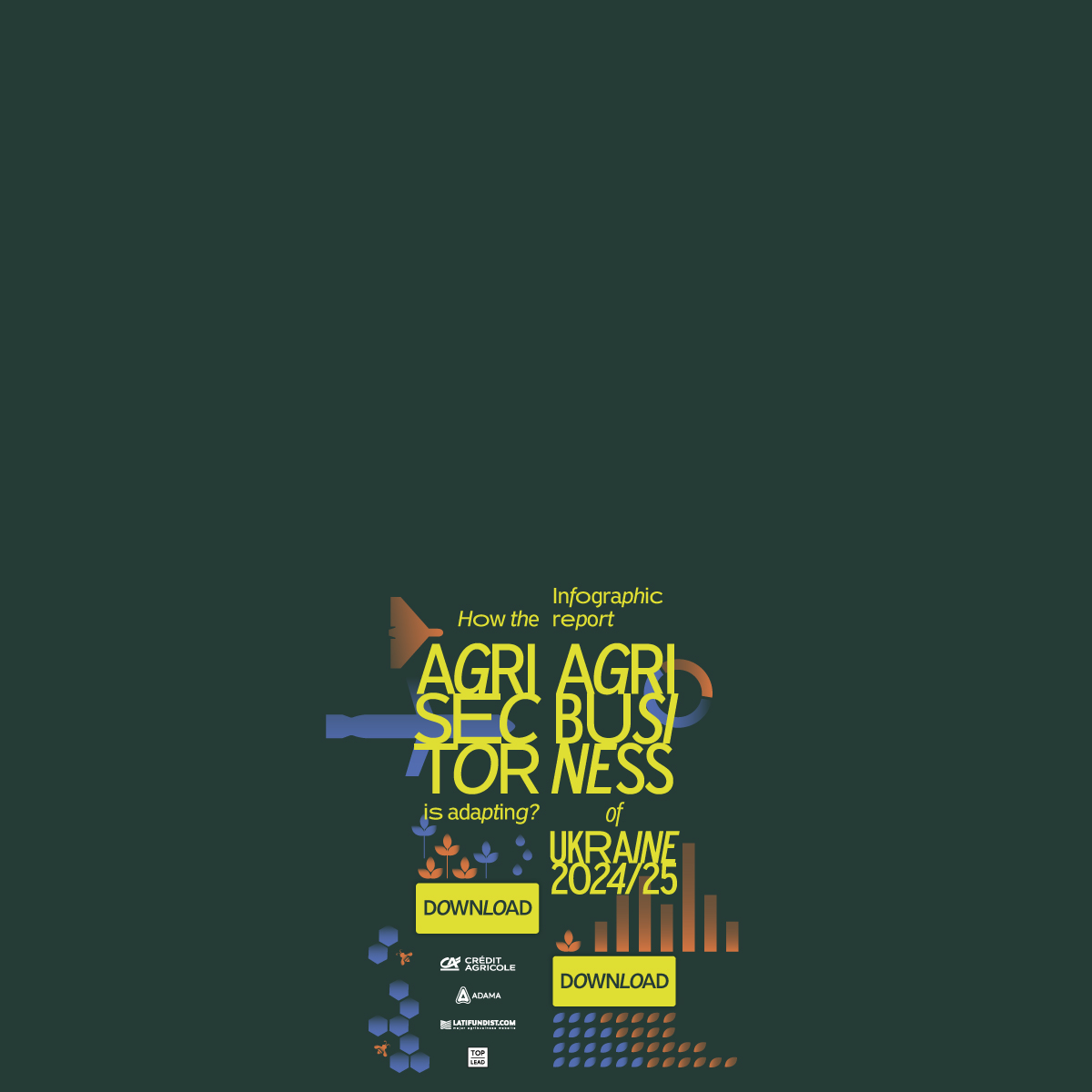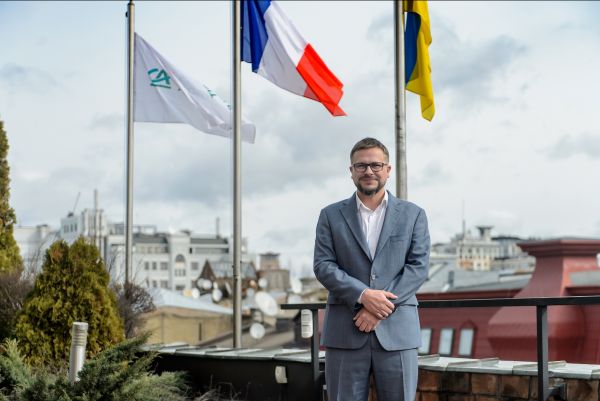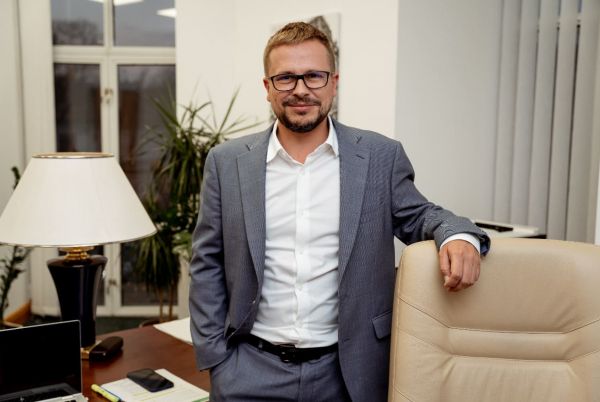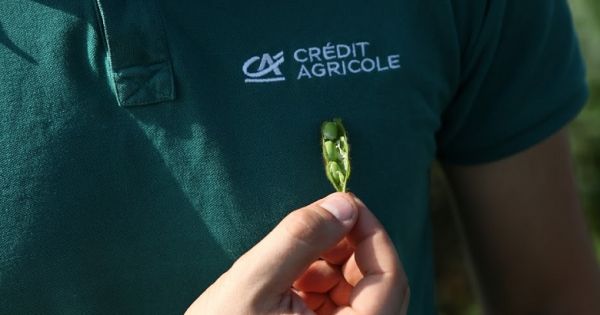Alexandre Tchesnakoff: Banks Have Limited Resource, so They Allocate It to Those Most in Need
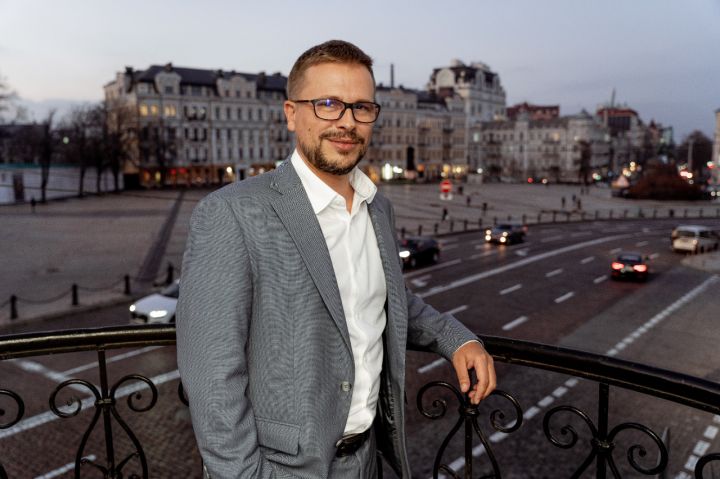
Photo by: Latifundist.com
In mid-November, Alexandre Tchesnakoff was appointed Member of the Management Board at Credit Agricole Bank, responsible for Corporate, Agro, SME, Financial Markets and Leasing.
He could very well have stayed in France, where his wife and children are at present (Alexandre has been with Credit Agricole Group for over 16 years now), yet in May he came back to Kyiv. He is living between the two countries now. He says, however, that never has he felt so motivated to work before and proud to be in a position to help Ukraine in such trying times.
During his conversation with Latifundist.com, he shared how the bank’s team lived through the full-scale invasion, how they had to change approach to issuing loans for the agrarians, by how much the interest rate has gone up, also about the Group’s departure from the russian market and how the war has “helped” Europe discover that Ukraine is not a buffer between Europe and russia, but a valuable economic partner.
The war has shown the who is who of business
Latifundist.com: How did your communication with customers evolve post February 24? Are you prepared to meet them in person or just online?
Alexandre Tchesnakoff: Our managers are ready to meet customers in person, those who are available and continue operating in Ukraine. We also have customers who currently reside abroad – both the Ukrainians who left and foreigners. Since the Covid-19 times, we have been working with them online. All communication with customers on the temporarily occupied territories is also online.
It is not the key concern, however. Now, due to risks, we have to study every separate case a lot more in depth, than before the war. Sometimes it is a cause of misunderstandings on the part of the customers.
Latifundist.com: Why?
Alexandre Tchesnakoff: Prior to the war it was a well-oiled process, the key objective of which was to win competition for the customer in need of financing. Now the risks have increased significantly, and the banks, as you know, practice caution in this regard. Also, the banks are not keen on being unable to predict what will happen next. Now, sadly, nobody can make long-term forecasts on Ukraine. Take the grain corridor, for instance. Recently it has been extended for 120 days. Do you remember what it was like prior to that?
Therefore now the banks have to adopt a totally different way of working, as we have a limited resource and have to allocate it to those who are most in need.
Latifundist.com: What is the key criterion for customer assessment now?
Alexandre Tchesnakoff: Generating cash flow is the key criterion now. Up until September it was less of a concern for us, since agrarians make their business plans for a season. And we predicted that the problems with the agrarian sector will arise in the end of current and beginning of the next season. That was exactly what happened. We can see now that the agrarians who were able to move a part of their stock are in a better position. The kind of profit they are able to make is a different issue. However, everyone’s situation is unique. But this war has shown the who is who of business.
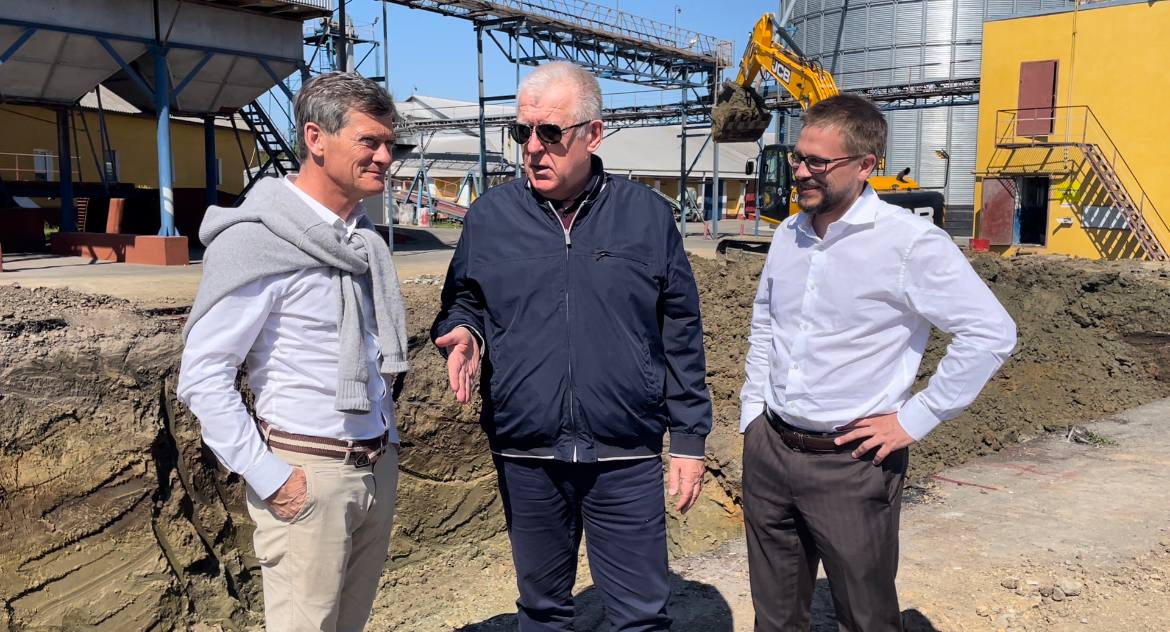
Latifundist.com: In wartime, the bank employees had to become experts in trading, in logistics, in demining of fields. That is, you must have a comprehensive understanding of a company’s business, right?
Alexandre Tchesnakoff: It is a compliment for us. In fact, we are bankers. We just have to study the customers’ businesses more in depth since the active phase of the war broke out.
Latifundist.com: What is the amount of issued loans during the full-scale invasion and, in particular, what share was allocated for the 5-7-9% programme?
Alexandre Tchesnakoff: Since the start of the war we issued UAH 1.2 billion worth of loans to the agrarian companies under the Affordable loans 5-7-9% programme.
Our major problem in the context of war, much like for other banks, is risks. To issue more, we make efforts to minimize the risks for each individual loan. During the war, we also joined the Government programme of state guarantees, under which we have already issued more than UAH 700 million in loans.
In late November, we also signed an agreement with the EBRD aimed at financing the country’s agrarian sector. Thus, we will be able to guarantee around EUR 50 million in loans. We make the maximum effort to help the agrarian business.
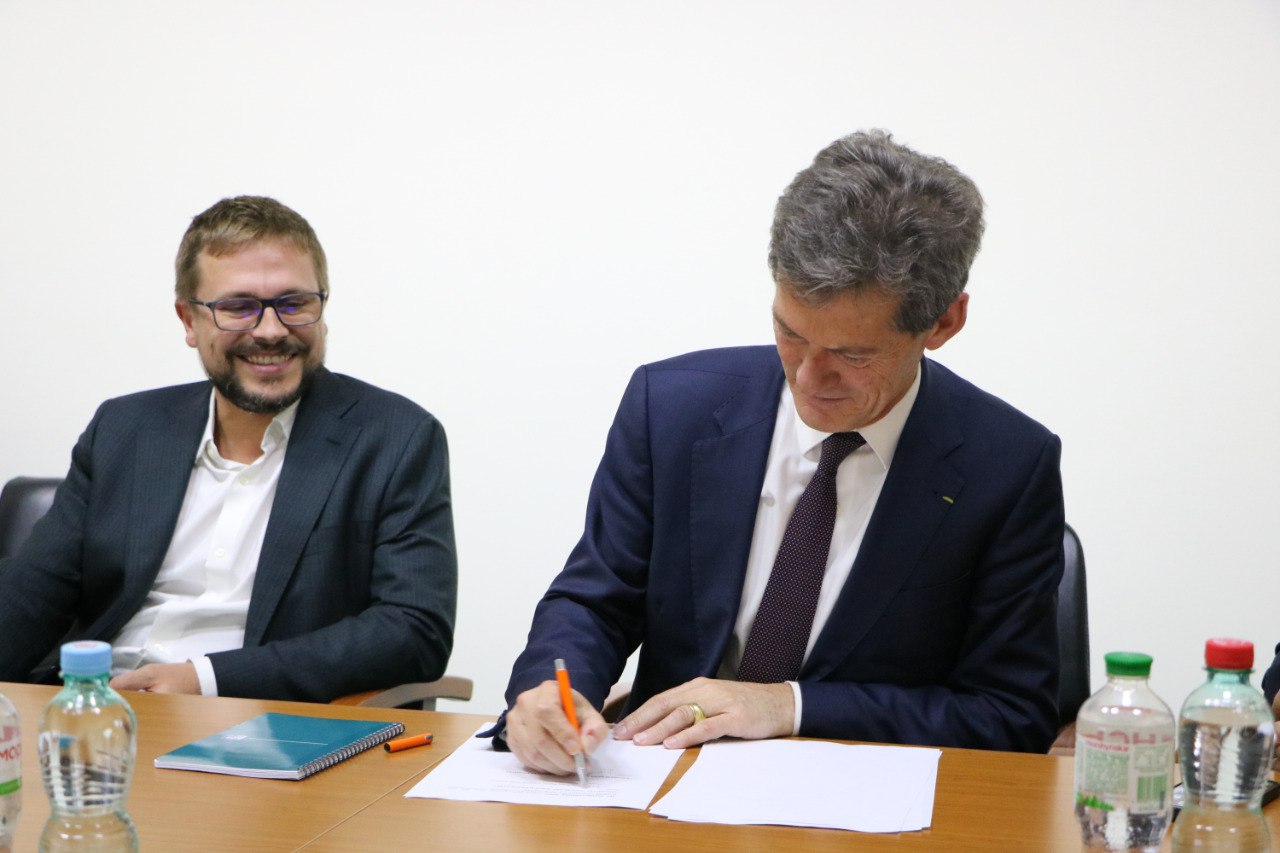
Latifundist.com: The financiers warn that we survived this season at the expense of the past reserves, thus we will feel the economic consequences of the war in the new year.
Alexandre Tchesnakoff: That is true. Say the war will be over tomorrow, yet the negative economic consequences will affect us for quite a while. The peak will be in March-April of 2023, the most acute phase for the economy is to come.
Now we observe that the economic possibilities having accumulated over the previous successful years are gradually diminishing. Interruptions of gas and power supply do not go unnoticed by the agrarian sector as well as by other industries.
Latifundist.com: What do you think, which agrarian industries have been the most and the least affected by the war?
Alexandre Tchesnakoff: I can tell you which ones operate more or less consistently. These are the sunflower processing companies that were able to export oil to the EU at the beginning of a full-scale invasion. At the time, in the EU everyone was buying sunflower oil en masse because it is primarily exported from Ukraine and there was fear that it would disappear from the shelves due to the war. The prices went up, so those who managed to promptly organize logistics over the western borders were able to sell it at a really attractive price.
Latifundist.com: Europeans probably realized to what extent they depended on Ukraine.
Alexandre Tchesnakoff: Yes, they all realize that Ukraine is not a buffer between Europe and russia. Our country is a rather valuable economic partner. With every month of the war, the world is learning more and more how much was imported from Ukraine, when these goods gradually disappear from the shelves. This is not limited to the agrarian products, there are other goods such as furniture, tableware.
Our task is for the bank to work efficiently, and for our customers to have opportunities for growth
Latifundist.com: For what purposes do the agrarians borrow funding the most?
Alexandre Tchesnakoff: For the working capital. This is due to increased logistics prices. Previously there have been no problems with export. When the seaports closed down, some customers had to reload grain 3-4 times each before it reached the vessel. And time is money.
Latifundist.com: By how much did the interest rate increase?
Alexandre Tchesnakoff: The latest rate increase equalled over 10% across the banking system. That is, one could say they practically doubled compared to the pre-war level.
Everyone remembers when the NBU key policy rate went up to 25%. After that, loan interest rates started increasing. For the customers taking out short-term loans, the changes were instantaneous.
Clearly, we will not reach the rate of 25%, as it is a thin line for the bank. I believe that the communication was devised correctly on our part. We explained that we would not increase the rate, as we cannot afford to issue excessively expensive loans. While we do want to make profit, we also want our customers to be in good health. Everybody is aware that if you give out loans at 25% interest, you will simply destroy the customer’s business. You will get neither the loan principal, nor its interest back.
Latifundist.com: It is a logical assumption that the loan terms have been reduced by the banks.
Alexandre Tchesnakoff: You can count the loans issued for over a year during the wartime on one hand. On average, we provide financing for half a year. The situation has significantly improved since the beginning of the war. At the time, the forecasting horizon was just one day. Then at some point in increased to a week, a month. Now it is 6 months.
Let me stress this point, we issue loans from the funds we received from customers who placed their deposits with us, and we are responsible for paying them back. Which means that when we assess a customer for a certain product, for instance, a loan, we will provide funds for the term we can afford, in particular, depending on the deposit base.
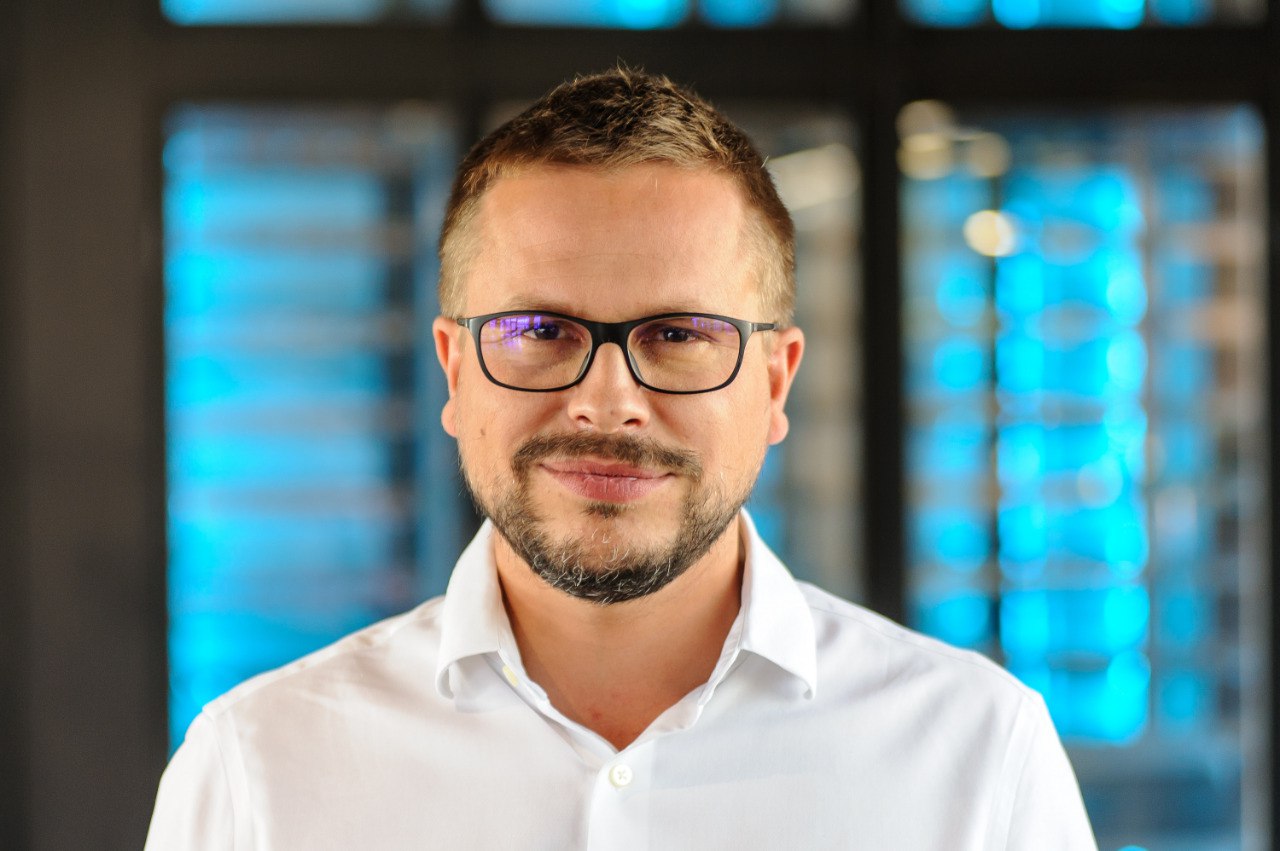
On how the market of financing agrarians has changed
Latifundist.com: Does the bank work with trade financing?
Alexandre Tchesnakoff: Yes.
Latifundist.com: Many traders and farmers complain that during the active phase of the war the banks have practically ceased trade financing.
Alexandre Tchesnakoff: We have not ceased trade financing. Clearly, in wartime, some limits had to be placed in connection to risks. Why is such financing so risky at the moment? Because the trade is bound by some agreement more or less clear in terms of time. At the beginning of the war, when the complete overhaul of logistics took place, it was difficult to implement. Because the exporters of the agrarian produce have got new counterparties and their partnership is not so established yet. Consequently, one party wants to be safe and asks for a pre-payment, while the other is not sure that it will receive the product.
Latifundist.com: For many years, commodity lending has been in competition with bank lending. Not directly, but still in competition, as you are competing for the same customer. Do you feel they have significantly reduced lending?
Alexandre Tchesnakoff: Firstly, we never considered distributors our competition, they are also customers supporting their sales. On the whole, commodity lending did go down due to the war and the change in the structure of the economy. Again, it is the issue of risks.
Secondly, we are the biggest experts specifically in risk assessment nowadays. We cannot know all of it, but I consider our bank to have greater expertise in risk analysis than others.
Due to having the experience of one of the biggest financial groups in Europe, which is over a century old, to back it up. Sure, they do call us conservative at times but that is what has helped us to work for over 130 years and support customers all over the globe.
Latifundist.com: How did the market of agrarian lending change? After the invasion, many banks have emerged on the market specifically with agri-programmes.
Alexandre Tchesnakoff: The list of banks lending to the agrarians has changed. However, the market itself did not grow or decrease.
Latifundist.com: How has the portfolio of your customers changed?
Alexandre Tchesnakoff: After February 24, our portfolio did not decrease, it even grew somewhat. However, within the portfolio, we had to reduce the loan amounts for customers in proximity to the active hostilities because of the increased risks. There are also customers, whose loan amounts even increased. On the whole, demand for financing has grown on the part of the agrarian customers and over 50% of the bank’s loan portfolio consists of lending to the agrarian sector and processing.
Latifundist.com: Talking about the agrarians who are now on the temporarily occupied territories. Are there any “loyalty programmes”?
Alexandre Tchesnakoff: If a customer with good credit history is experiencing some difficulty, we will do our best to help them overcome it. We will work together to help them pay off the amount due.
Actually, many of our customers are on temporarily occupied territories and they continue maintaining their loans. Certainly, we understand that their lives are not easy. And they may have other priorities before maintaining loans, but they do it anyway. There are also customers whose situation is not bad but their attitude towards their suppliers and customers is not fully appropriate.
Latifundist.com: Are there any agroholdings among such customers?
Alexandre Tchesnakoff: No. Agroholdings are a different story altogether. Agreeing on the terms of cooperation with them is always interesting. It takes a bit more time and effort to enter into agreements with them. However, I have not witnessed any outright negative behaviour on their part.
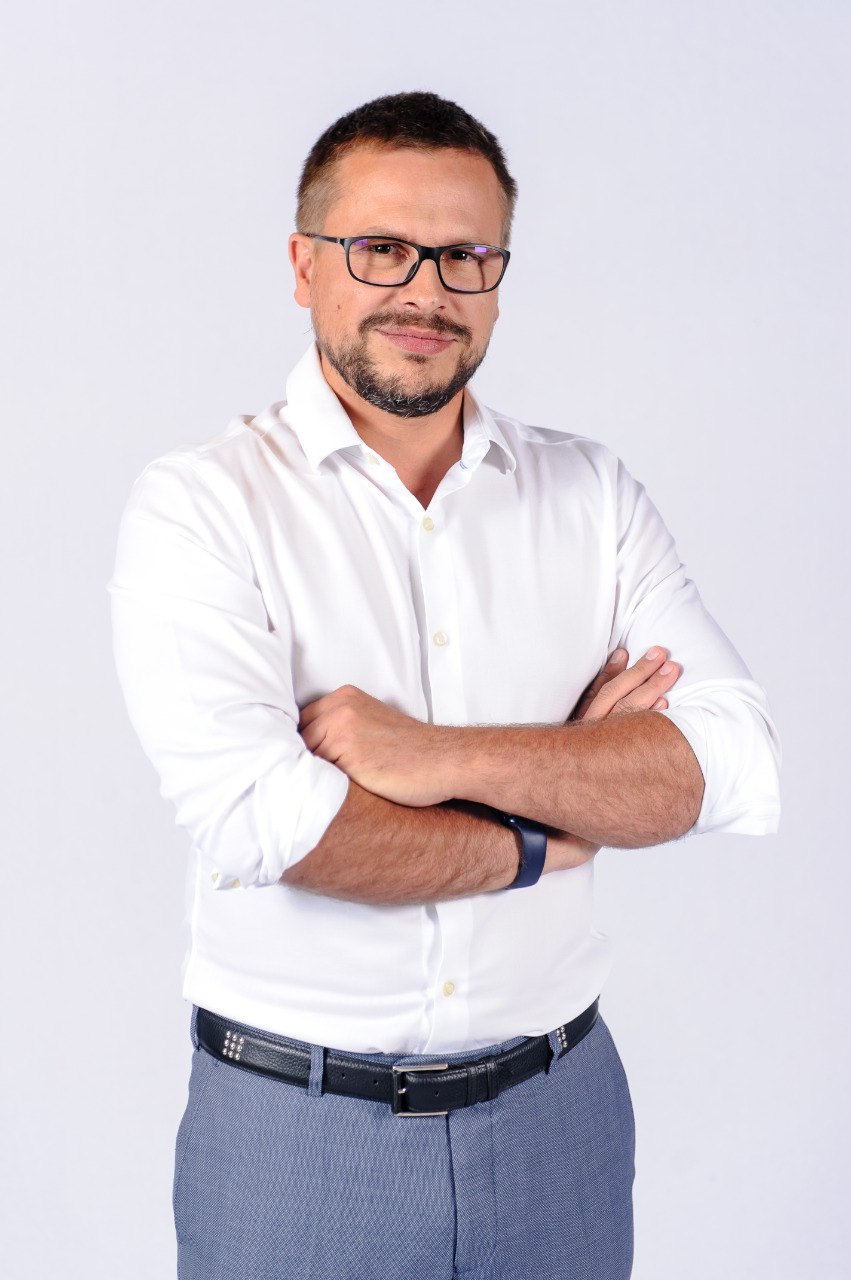
Latifundist.com: Throughout the entire existence of this model, agroholdings in Ukraine are predicted to disappear with time, like it happened in Brazil and Argentina. Will the war trigger it in a certain way?
Alexandre Tchesnakoff: Even prior to the full-scale invasion I also had a feeling that indeed such model in Ukraine will run its course and go away sooner or later. After February 24, I was certain that situation will nothing but accelerate the transformation of the agribusiness. Why? Because many built their businesses to rely on the southern seaports. Now, however, I can see that the companies are managing this issue by investing in the dry ports, paving the way for the new logistics over the western borders, etc. Nobody knows what will happen after the end of the war, but now my stance on agroholdings is not as categorical as it was pre-war.
Latifundist.com: Many agroholdings have a diversified land bank. Some were saved by the western clusters this year.
Alexandre Tchesnakoff: Having a land bank at one’s disposal equals the ability to sell crops and receive cash flow. Now however, it is not the size of the company that matters, but how fast the management can mobilize.
Latifundist.com: Tell us a little about the digital solutions for the bank.
Alexandre Tchesnakoff: For business (legal entities and entrepreneurs), we launched CORPEX internet banking. Customers can use it to make payments in the national and foreign currencies, submit applications for deposits, loans, sell/exchange currencies, etc. At the moment, migration of all active customers who used Style internet bank to CORPEX is taking place and we simultaneously connect the new customers to it.
In November, we launched CA+ Pro, the new internet-bank for entrepreneurs. It was created by the same team that developed the СА+ mobile app, which is now used by all retail customers. By the way, during the war, new function was added to the СА+ that enabled its users to collect UAH 33,6 million to support the Armed Forces of Ukraine and charity funds.
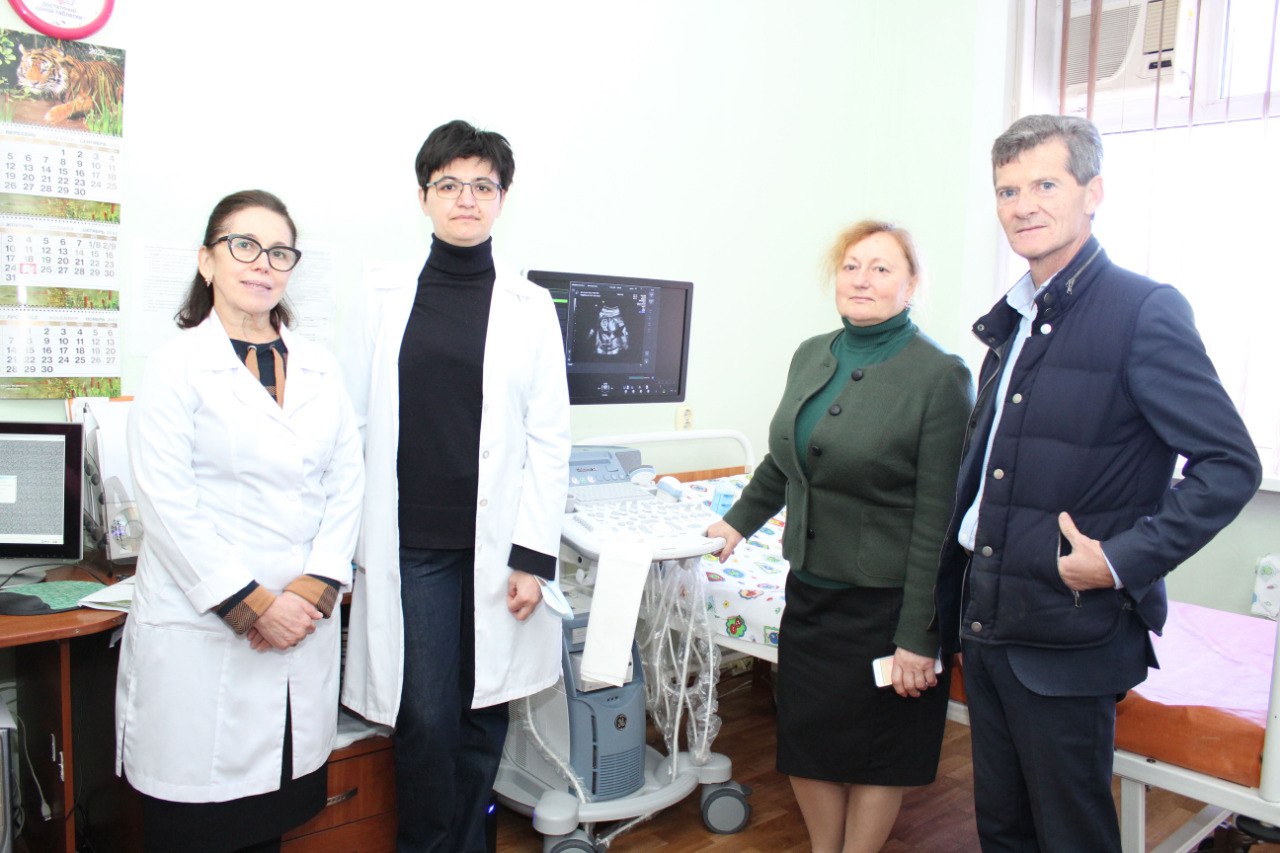
Also due to the war, we had to accelerate the launch of the remote customer video-identification, so now entrepreneurs can open a bank account entirely online without visiting an outlet. Also there are digital and cloud solutions within the bank. The bank has created the 3rd data-processing center on the cloud with reserve copies of all the data. This will ensure continuous access to the financial services in case of grave consequences of the war.
How the work imparts the feeling of “normalcy”
Latifundist.com: When we ask the agrarian business representatives whether they believed that russia will openly attack Ukraine, the majority tell us that they did not. How did you feel and where did February 24 find you?
Alexandre Tchesnakoff: I did not quite believe that russia would attack Ukraine so I never had my “emergency bag” packed. When the full-scale invasion broke out, my family and I were abroad. We left as early as February 20, as my children had school holidays then. It was risky to return to Ukraine at the time, so we decided that my wife with children would stay in France for the time being. I came back to Kyiv in May for the first time.
Latifundist.com: How did Credit Agricole Bank organize its work in Ukraine at the time?
Alexandre Tchesnakoff: For the first two months, we worked remotely and constantly kept in touch with each other. It was complicated, as it is one thing when you are present in the country and see everything firsthand and another when you are overseas and watch it on TV. You need to provide some guidance for your team, however, is it going to be relevant?
That is why it was really challenging for me at the beginning. I recall the first four days. We kept collecting information on the team — where they were located. On the fourth day, on Saturday, the colleagues asked: “What shall we do on Monday? Which strategy shall we choose and how shall we serve our customers?” For several minutes, I was speechless, then asked them: “How can you think about it when your lives and those of your family are in danger?”
During the day I pondered that conversation and realized how committed the employees are to their work, besides in a moment like that we all needed the feeling that everything will be alright. The sense of normalcy.
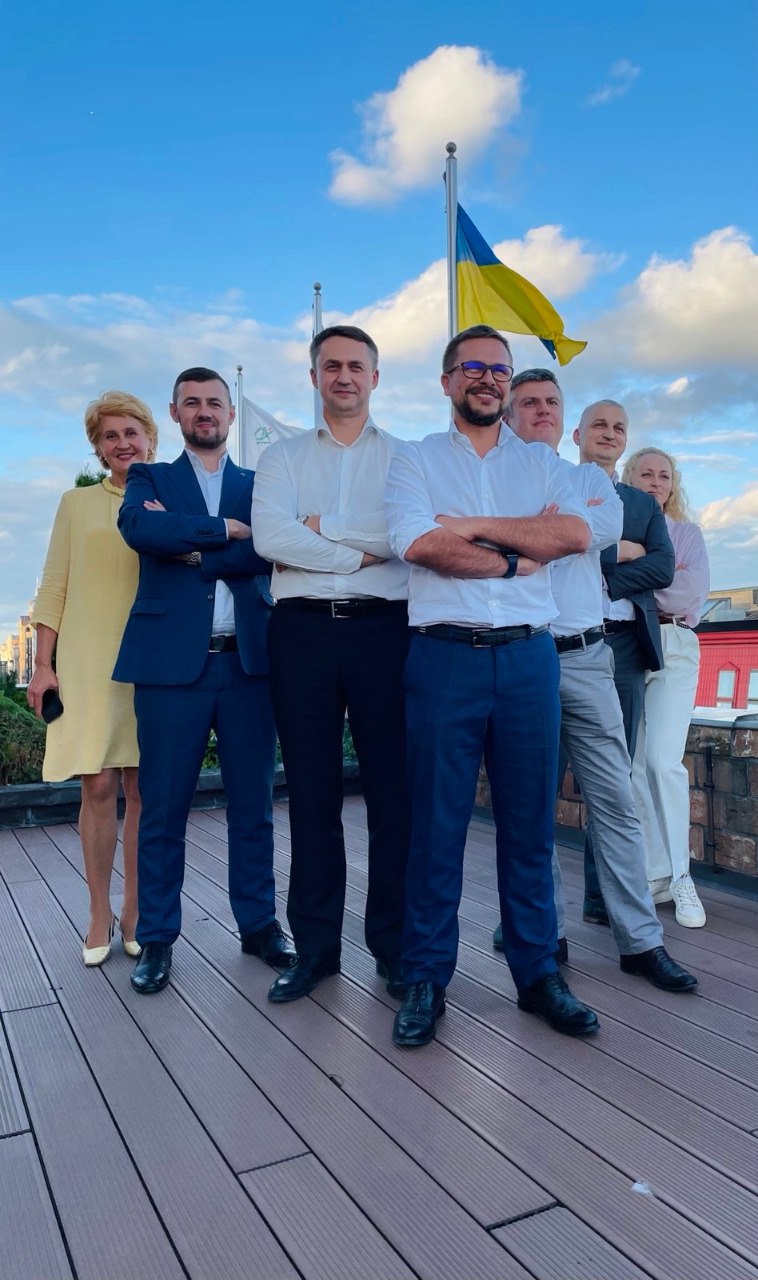
Latifundist.com: The work imparted that very sense of “normalcy”, didn’t it?
Alexandre Tchesnakoff: Exactly. Then this sense of the search for “normalcy” was quickly substituted for the sense of pride in their work, I feel. Pride that you are supporting your country when it needs it. Not everyone can go to the front line, and not everyone should. The economy and the country have to keep working. Neither my colleagues nor I have felt this level of motivation before. This is the reason we get up and work every day because we know what we are doing it for.
Latifundist.com: Did Credit Agricole Bank have a corporate emergency bag in the eventuality of the war?
Alexandre Tchesnakoff: Actually, we prepared for any possible scenarios. We developed a plan B for each of those. Yet, one can never be 100% ready. Plans had to be adapted to reality. However, I can frankly say that this preparation was useful for us all. It forced us to be mentally prepared for a certain event.
Latifundist.com: You returned to Ukraine in early May. Did you adopt “a habit of war” during this time?
Alexandre Tchesnakoff: I remember that when I crossed the border for the first time I saw that everything here is not like they show on TV. I held many meetings with employees and customers. I saw that children go to school, people go to work. Then I realized that if they are able to somehow live with it, I will be, too. That is when reframing took place. I am in Kyiv now and I cannot say that I am too scared to be here (smiles — Ed.).
As for the bank, it took us about a month to set up all the work. Prior to that employee safety was the biggest concern. When we realized that the majority of people are in a safe place, we started actively working in wartime.
On the retreat of the parent company from russia
Latifundist.com: Tell us about the parent company, in particular, how it supported you in the spring.
Alexandre Tchesnakoff: In the first days of the war, the Group established the emergency solidarity fund in the amount of 10 million euros. Half of this amount was allocated to support employees of the bank in Ukraine, while the rest is for the non-governmental organizations that redistribute the funds on site and provide targeted assistance to those in need.
As for business, the Group provided us with guidance on how to work and we followed it. In particular, we were advised to decrease the share of currency loans, especially for the customers whose revenue is not in foreign currency, as it can jeopardize both the bank and the customer.
Latifundist.com: The bank has left russia. Was it a big market for you?
Alexandre Tchesnakoff: In Ukraine, Credit Agricole Bank is a universal bank employing about 2.4 thousand people. In russia it is a corporate investment bank, employing 170 people that served large international corporates. The Group did not have any retail banking there. Bank sizes and profiles differed, but it is not figures, but values that matter and Credit Agricole is guided by the latter.
Latifundist.com: When the friends of yours in France find out that you work in Ukraine now, what questions do they ask you the most?
Alexandre Tchesnakoff: Most frequently, they ask: “Why are you there? We thought you were back in France for good.” And I start explaining that I never derived so much pleasure working as I do now. I make every effort to be useful and help Ukraine. Naturally, Kyiv is not the safest of places nowadays. But when I am here, I feel valuable.
Latifundist.com: Thank you for your candid answers.
Kostiantyn Tkachenko, Natalia Rodak, Latifundist.com
